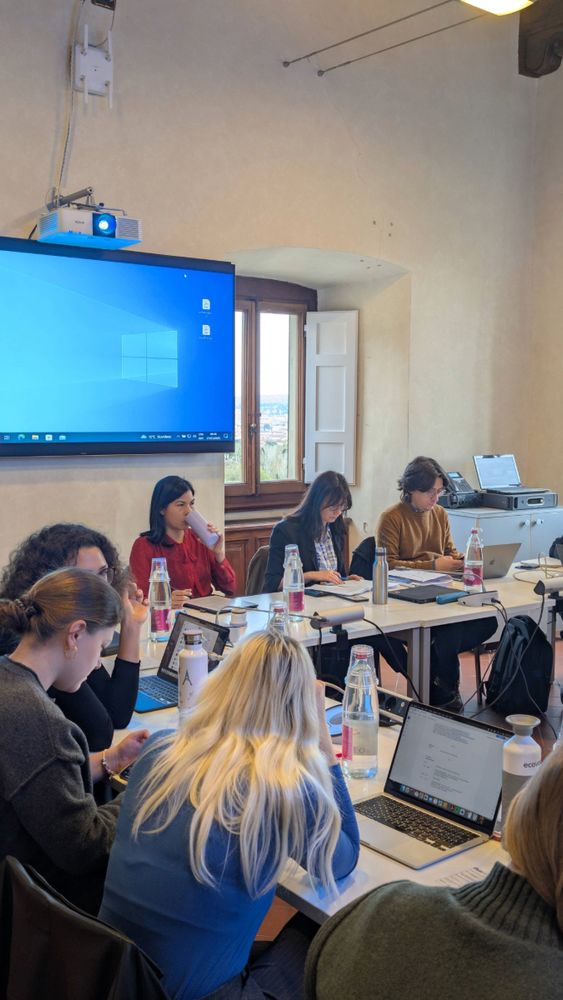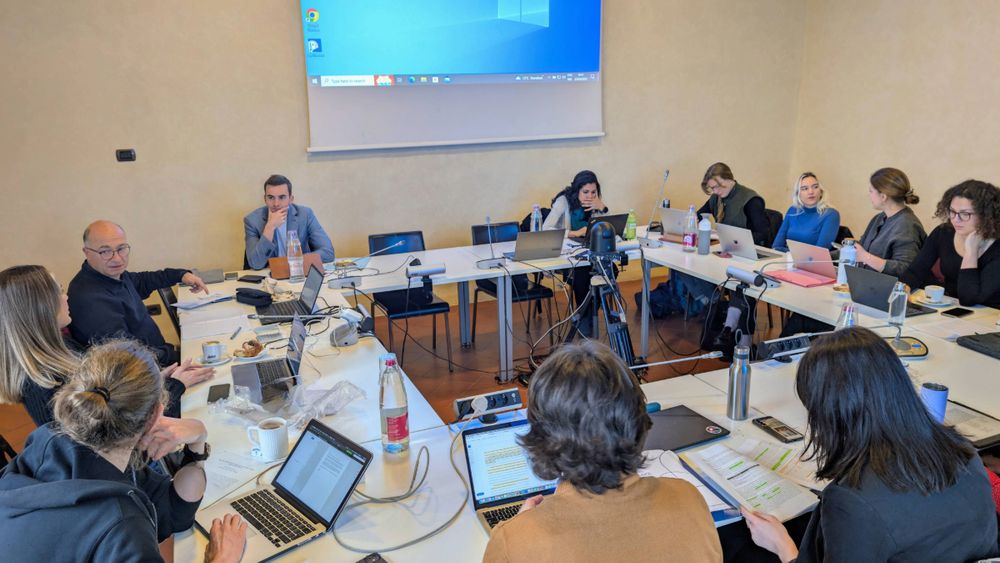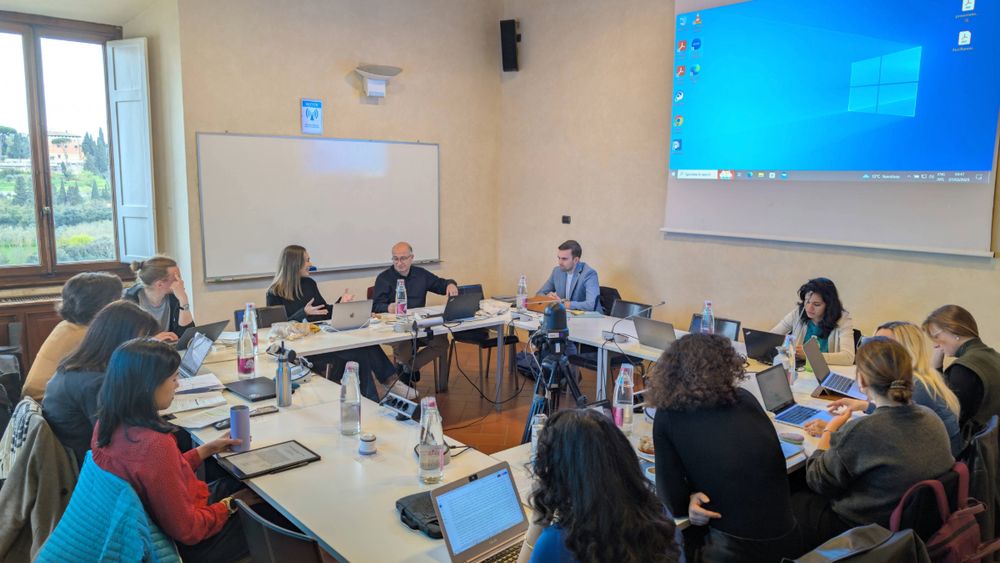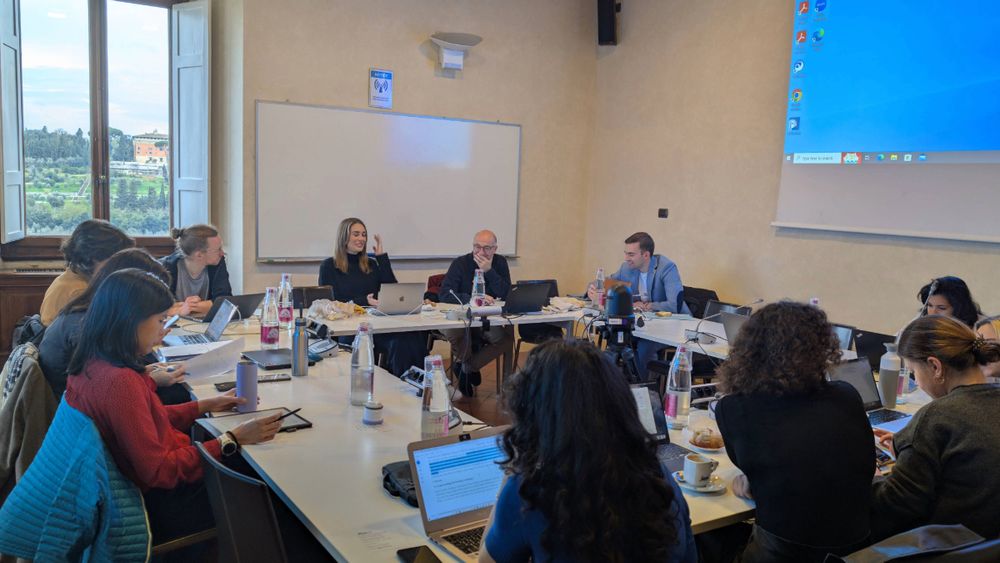
I’m very excited to share that my paper “Cleavage theory meets civil society: A framework and research agenda” with @eborbath.bsky.social & Swen Hutter has now been published online in @wepsocial.bsky.social (w/ open access funding thanks to @wzb.bsky.social!)
www.tandfonline.com/doi/full/10....
28.08.2025 13:25 — 👍 111 🔁 35 💬 8 📌 7
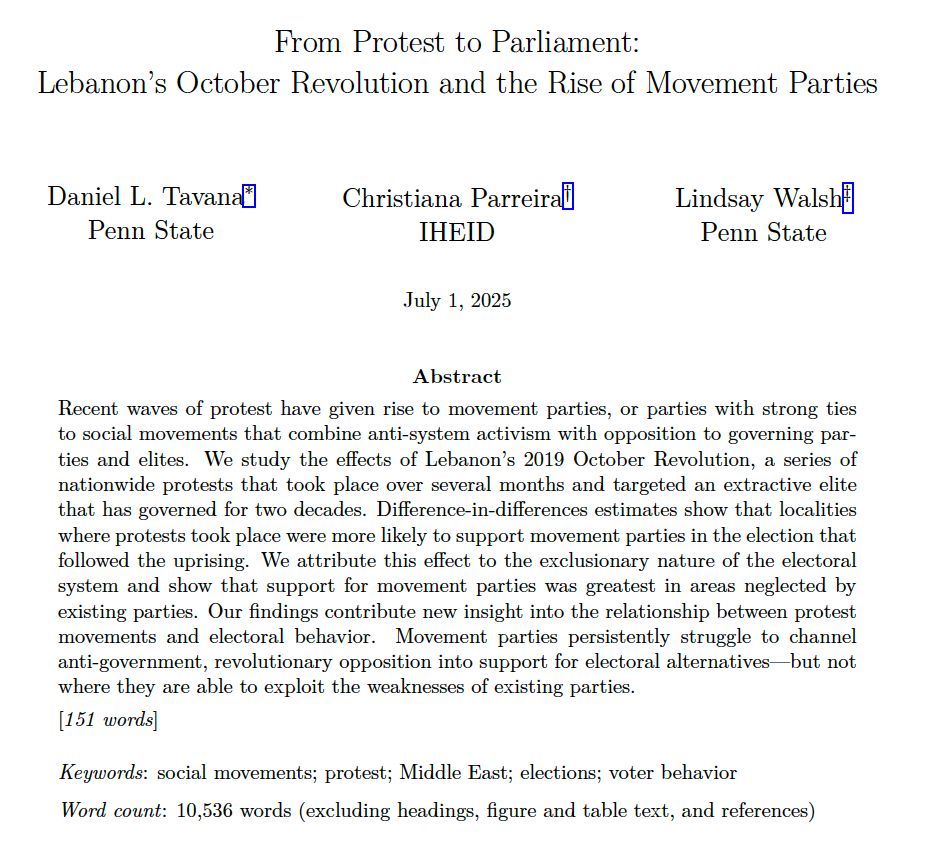
New preprint with @cmparreira.bsky.social and Lindsay Walsh posted to @socarxiv.bsky.social: "From Protest to Parliament: Lebanon’s October Revolution and the Rise of Movement Parties." Link: osf.io/preprints/so...
22.07.2025 22:06 — 👍 14 🔁 6 💬 1 📌 0
Ultimate takeaway: municipalities in Lebanon are key intermediaries between ordinary people and the state in everyday politics. People elect who they think will faciliate their access to state power. For now, it’s mostly the same establishment parties, with a few exceptions. /14
02.06.2025 12:15 — 👍 0 🔁 0 💬 0 📌 0
Notably, an analogous diminishing of electoral power largely did not occur in Hezb's historical strongholds: the "Shia duo" seemingly held onto most affiliated councils, suggesting the 2024 war did not significantly impact their local electoral machinery /13
02.06.2025 12:15 — 👍 0 🔁 0 💬 1 📌 0
Meanwhile, the FPM has suffered from internal chaos over the past few years, and their grip on power within their Christian community loosened this cycle. For example, in Zahle, where they won a victory in 2016 allied with the LF, they abstained from running altogether /12
02.06.2025 12:15 — 👍 0 🔁 0 💬 1 📌 0
In Tripoli, Future historically struggled to gain control, and was absent from competition this round. A list backed by local MPs (Kabbara, Rifi, Karame, etc) won 12/24 seats, while an anti-establishment list (Fabric of Tripoli) gained 11 seats in a rare newcomer victory /11
02.06.2025 12:15 — 👍 0 🔁 0 💬 1 📌 0
For example, in Saida, the Future Movement once maintained an iron-clad grip on local politics. No more: less than half of seats (10/21) were won by a list loosely endorsed by the party, while its opponents (Saad, Bisri, the Islamic Group, independents) captured 11 spots /10
02.06.2025 12:15 — 👍 0 🔁 0 💬 1 📌 0
In some areas, new patterns of competition and surprising results emerged due to the near-collapse of two governing parties since the last local elex (Future Movement and Free Patriotic Movement). These parties floundered in places where they once played a key role /9
02.06.2025 12:15 — 👍 0 🔁 0 💬 1 📌 0
Worth noting Lebanon's local electoral laws (majoritarian, open-list) bias toward broad alliances. Reinforcing this are national consociational institutions and informal norms, which all favor oversize governing coalitions. The result: blockage of outsider entry. Except... /8
02.06.2025 12:15 — 👍 0 🔁 0 💬 1 📌 0
In Beirut, for example, most of the major party cartel members (LF, Kataeb, Hezb, Amal) and governing elites allied. A similar dynamic emerged in Christian-majority Jounieh, where the LF, Kataeb, and a variety of prominent local MPs (Frem, Khazen, Bon) ran together /7
02.06.2025 12:15 — 👍 0 🔁 0 💬 1 📌 0
So how did the governing parties stave off challenges from outsiders, including reformists once buoyed by the 2019 protest movement? One answer: they allied with one another (even across ideological lines), much like in post-war local elex in 2016, 2010, and 2004 /6
02.06.2025 12:15 — 👍 0 🔁 0 💬 1 📌 0
Another secular reformist movement, Citizens in a State (MMFD), ran incomplete lists in several cities, including Beirut, where they won an estimated 1-2% of the vote. Other reformist/anti-establishment lists in Baalbek and Sour similarly failed to challenge governing parties /5
02.06.2025 12:15 — 👍 0 🔁 0 💬 1 📌 0
Instead, secular reformist lists ran autonomously in many cities, including the capital, where the "Beirut Madinati" list attempted to revive the slogan used by activists in 2016. While they received ~40% of the vote in 2016, they secured less than 10% this round /4
02.06.2025 12:15 — 👍 0 🔁 0 💬 1 📌 0
First, it's important to note what *didn't* happen: coordination between secular reformist (i.e. "change" or "revolutionary") groups to field candidates under a coherent banner throughout the country. This might be partly due to the short notice on which elex were announced /3
02.06.2025 12:15 — 👍 0 🔁 0 💬 1 📌 0
A few trends emerged from these elections. I'll talk about three: (1) underperformance of the secular reformist movement, (2) endurance of alliances between members of the post-war sectarian party cartel, and (3) shifts in power due to the decline of two ex-governing parties /2
02.06.2025 12:15 — 👍 0 🔁 0 💬 1 📌 0
Last month, Lebanon held its first local elections since 2016. Over the past nine years, the country has experienced a series of upheavals and crises - yet the most remarkable feature of these elections was (mostly) how much they resembled previous ones. Some key takeaways /1
02.06.2025 12:15 — 👍 1 🔁 1 💬 1 📌 0

In case you’re currently on the market: With a welcoming stance toward non-Swiss students (34.7% of the student body), Switzerland remains an attractive option.
Also notable: a clear shift in interest among non-US students re PhD opportunities (shared via @marcelsalathe.bsky.social): polisky
31.05.2025 08:16 — 👍 3 🔁 2 💬 0 📌 0

Must-read special issue in Dædalus (open-access!) on research ethics in the Middle East & North Africa by an extraordinary group of scholars covering threats to academic freedom, the politics & economics of knowledge production, disinformation, AI & much more: direct.mit.edu/daed/article....
30.05.2025 17:27 — 👍 15 🔁 7 💬 0 📌 0


Do only poor voters respond to political freebies? This study suggests that rich voters do too, but only when it comes from their own party.
@cmparreira.bsky.social @thejop.bsky.social
#JOP #Clientelism #Elections #PoliticalBehavior #Lebanon #PoliticalScience
27.05.2025 20:15 — 👍 3 🔁 2 💬 0 📌 0
Where does this leave us? We suggest more work should be done (a) probing how clientelism works among higher-income voters, and (b) how income and partisanship interactively mediate demand for clientelism across the socioeconomic spectrum. /8
15.05.2025 16:39 — 👍 0 🔁 0 💬 0 📌 0

We also find that co-partisanship mediates preferences for clientelism among higher-income citizens, but not others. We (tentatively) think this suggests that higher-income voters develop different, more relational ties with clientelist parties /7
15.05.2025 16:39 — 👍 0 🔁 0 💬 1 📌 0
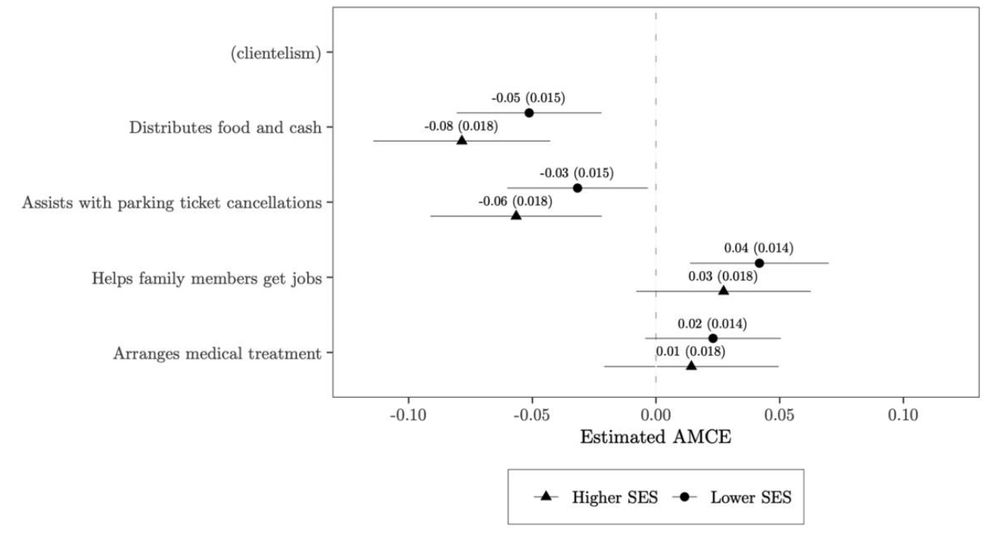
Interestingly, we find no difference in preferences between higher- and lower-income citizens. Everybody disfavors low-value clientelism (food or cash), and everybody favors higher-value goods (medical care or jobs) /6
15.05.2025 16:39 — 👍 0 🔁 0 💬 1 📌 0
We also investigate how co-partisanship mediates these preferences - do people prefer clientelism when it's being offered by an elite from a political party they generally support? /5
15.05.2025 16:39 — 👍 0 🔁 0 💬 1 📌 0
Using a conjoint experiment in Lebanon, we test the claims that (1) lower-income citizens demand clientelism at higher rates, and (2) that higher-income citizens prefer higher-value goods (like medical care and access to jobs) /4
15.05.2025 16:39 — 👍 0 🔁 0 💬 1 📌 0
We also know it’s not that simple - clientelism takes on many forms, including higher-value goods that would be helpful to almost anyone. We also know that in some contexts, like Lebanon, programmatic services are scarce, making clientelist goods more valuable in general /3
15.05.2025 16:39 — 👍 0 🔁 0 💬 1 📌 0
In the paper, we first consider a large literature that frames clientelism as a transaction primarily targeted at and demanded by poorer constituents. This makes sense - the marginal benefits of cash, food, or other services are greater for lower-income voters. But... /2
15.05.2025 16:39 — 👍 0 🔁 0 💬 1 📌 0

How does demand for clientelism vary by socioeconomic status? In our paper just out at @thejop.bsky.social, my co-authors Melani Cammett, Sami Atallah, and I use a survey experiment in Lebanon to question some assumptions about who demands clientelism. /1
www.journals.uchicago.edu/doi/epdf/10....
15.05.2025 16:39 — 👍 7 🔁 0 💬 1 📌 0
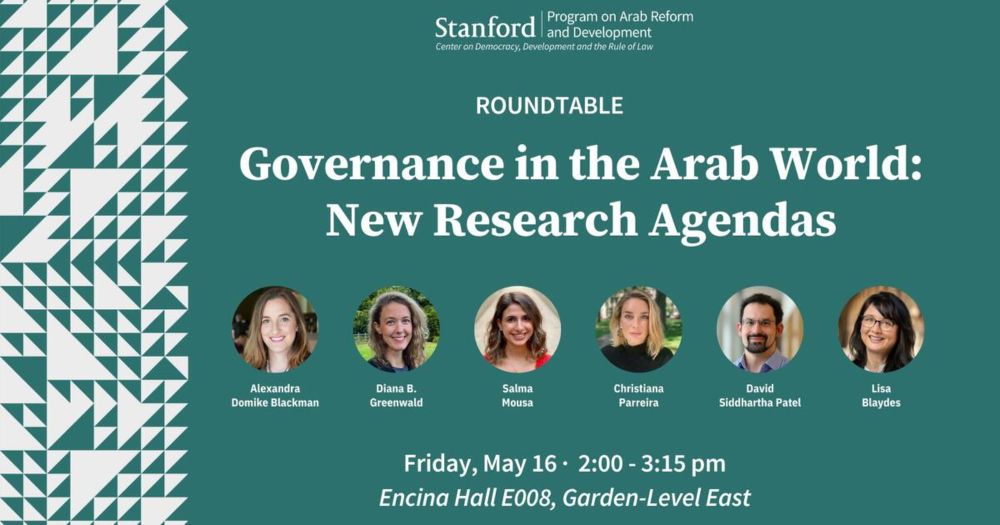
Roundtable | Governance in the Arab World: New Research Agendas
For any Stanford folks - @stanfordcddrl.bsky.social is hosting a talk tomorrow at 2 pm on governance challenges in the Middle East and related emerging research. I’ll be participating, along with several other friends and colleagues - join if you can!
cddrl.fsi.stanford.edu/events/round...
15.05.2025 16:00 — 👍 2 🔁 2 💬 0 📌 0

ICYMI, watch the recording of last week's Lunch Briefing on
"The Future of #Syria After the Fall of Assad".
Professors Schayegh & @cmparreira.bsky.social discussed the history of Syrian politics, the rise of the regime and its impact on the country's political dynamics.
👉 shorturl.at/18YdA
24.02.2025 11:16 — 👍 1 🔁 4 💬 0 📌 0
Professor of communication, News & Media Research Centre, University of Canberra, Ngunnawal country • Director, Digital Commons Policy Council • Civic information literacy for schools • Political economy of digital commons • https://dcpc.info/actions/
Ph.D. student at the University of Wisconsin-Madison. Researching contentious politics and institutional change in MENA.
https://jeremielanglois.com/
CIS at @ethz.ch | historical & empirical pol. economy, pol. behaviour, culture, social norms, gender & violence
La Fabrique de la Paix (the fab) is the Geneva Graduate Institute’s innovation lab. It aims to be a creative and safe space that promotes and showcases collaborative solutions.
🔗 https://www.graduateinstitute.ch/fab
PhD Candidate @Harvard Gov. Political Economist researching on the politics of opportunity. Credit Access, Education, and Labor Market policy in US, Germany, and Japan + affects on global financial stability. On the market.
https://www.danieltroberts.com/
▪︎ Reading, writing & thinking about the moral foundation of scholarship
▪︎ Author of Doing Good Social Science: http://bit.ly/3EgFA2z
▪︎ More about my work: immersiveresearch.co.uk
▪︎ DM for speaking/workshop requests
Eaton Professor of Government & Director, Center for European Studies @Harvard/ WZB Berlin/author of 'Tyranny of the Minority', 'How Democracies Die', & 'Conservative Parties and the Birth of Democracy.'
Academic in Security Studies | PhD in National and International Security Strategies (Turkish War Colleges) | MA in European Studies (UBC) | BA in Public Administration (Istanbul University, Turkey) | Diyarbakır native & Galatasaray Fan.
SNF-Postdoctoral Fellow at the University of Zurich. Interested in Human Rights, State Repression, and International Organizations. Also in football.
Homepage: www.christophsteinert.de
Writer | Recent Graduate (BA in International Relations and Politics)
Freelance journalist and editor of The Libya Gazette. Looking to connect with anyone willing to engage to write stories and create articles. DM's always open.
https://maghrebi.org/author/emm/
Opinion editor of Maghrebi.org
If you wish to pitch an opinion piece please send your article to grace.sharp@maghrebi.org
Research Fellow at @iast.fr, Toulouse School of Economics. Prev. DYNAMICS/Humboldt-Uni. Research on pol. behavior & CP: party competition, discrimination, crime, social norms & movements.
https://violeta-haas.github.io/
FNSP Associate professor of sociology at Sciences Po, affiliated with CEE and the Urban School. Holder of the Chair on Cities, Housing & Real Estate.
https://www.sciencespo.fr/centre-etudes-europeennes/en/researcher/bruno-cousin
Human, Learner, Voyager, Citizen. Polisci research on the state, development, and conflict. Assistant Professor @ LSE Department of Government. Previously Oxford and ETH Zurich. https://carlmueller-crepon.org
PhD student in Economic History, LSE.
nicholasfitzhenry.co.uk
Research: death, disease & doctors during Apartheid
Methods: Applied econometrics and historical demography.
Teaching: Industrial Rev., History of Middle East
🍉 political journalism, intern at maghrebi.org
Reporter for online newspaper, Maghrebi.org, focusing on news from the Sahel region.
Professor of Political Science, University of Copenhagen. Research interests: European and Nordic Politics, Political Economy. Collector of modern ceramics, Faroese paintings and Christine Swane paintings. Lifelong fan of Bob Dylan and modernist poetry.










